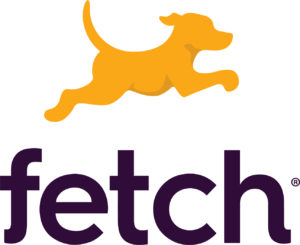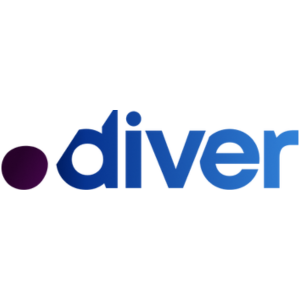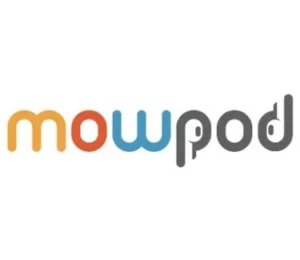Keeping Your Customers Happy — Benjamin Shapiro & Todd Hines // MarTech Podcast
Benjamin Shapiro & Todd Hines
benjshap LLC

- Part 1Dealing with Unforseeable Issues — Benjamin Shapiro & Todd Hines // MarTech Podcast
- Part 2Growth Hacking Growth — Benjamin Shapiro & Todd Hines // MarTech Podcast
- Part 3Migrating Your MarTech Stack — Benjamin Shapiro & Todd Hines // MarTech Podcast
- Part 4Managing a Freelance Workforce — Benjamin Shapiro & Todd Hines // MarTech Podcast
- Part 5 Keeping Your Customers Happy — Benjamin Shapiro & Todd Hines // MarTech Podcast
Show Notes
Quotes
-
“I feel like we’re all going to look back at this year and say, ‘God, that sucks. But you know what, I learned something by having that much taken away all at once, and even for the people that are thriving and succeeding, 2020 hasn’t been an easy year.” -- Ben “One big thing for us is recognizing that we have an opportunity to be more proactive and less reactive. What we recognized is that in some of our sponsorships relationships, our approach was often knowing that we were doing our best behind the scenes on our end to promote content to make sure that our sponsors get 110% of the value out of the partnership.” -- Todd“But we were sometimes watching things through our lens running smoothly, waiting if there’s any problem or issues to react and then reach out. But we noticed that to be a little more proactive and give more frequent check-ins, to really be transparent with our partners while campaigns are running instead of waiting just for the end for the final recap, it really makes a big difference to the people who have spent a portion of their budgets to work with us so we want to make sure they are getting a great value so the piece of being proactive is something that we looked to improve on this year.” -- Todd “We create advertorial content for our sponsors. Whenever we are saying, this person is a sponsor of the MarTech podcast when you hear them being interviewed, they are paying to be a guest on the show. We take that advertorial content and then we run advertisements to make sure that we reach our audience with our sponsor’s message multiple times. Once we’ve created content for our sponsors and we’ve run an ad campaign for them, there’s a data component to our business as well.” -- Ben “We actually ran into some problems this year and not every sponsor that we have is always perfectly happy with the results and the truth is, we are in the media business and we create advertising campaigns for some of our sponsors, and most of the time they are very effective. But some of the time, the ad creative isn’t great, or the message isn’t great, or some of the time our audience doesn't care about the sponsor’s message and we don’t know that until after we’ve run the campaign.” - Ben “One thing I can think of off the top of my head is the problem of attribution often in the entire podcast industry. Sometimes the expectation of, if we give the sponsor the ability to see the exact number of people who click on to the website, for example, through a specific promo link that was included. That’s not a clear read on how many listeners necessarily got to the website. So even just framing the success of the campaign based on traffic through a specific link given in a podcast, that’s not a good metric to figuring out the total impact of a campaign. That was one thing that we identified and wanted to rethink.” - Todd “That’s the problem with podcasting as a medium. It’s one of the things that we tried to be an industry leader on is not just having podcast advertising as a medium that is like a billboard. What we want is for it to be an attributable medium to revenue and direct response metrics.” -- Ben “I just think that information is directionally correct. It is useful. It is an indication of how a podcast campaign performs but it doesn’t really articulate a true value of a podcast sponsorship because there is another component. It is creating all of this data and that data can be used and fed to performance marketing efforts.” -- Ben “So we’ve started to change based on the signals that we got from some of our sponsors. We were starting to hear, ‘Hey look, you served 125,000 impressions in your ad campaign and less than 1% of them got to my website, that’s not enough traffic. I’m not happy with the campaign.’ So what we did is, ‘Hey, we want our sponsors to be happy. We’re going to continue to run your campaigns, we’re going to try to come up with another strategy or we’re going to offer you more advertorial content.” -- Ben “The most important thing that I could say is when your customers are giving you critical feedback, you need to listen. You can’t take it personally. It is not them being difficult. It is that your products and services didn’t live up to their expectation and you need to modify what you offer.” - Ben “So now what we’ve done, instead of saying we’ve got this great attribution platform, we started saying, ‘Hey, this attribution platform that we use is directionally correct but what matters the most is the amount of data that we’re able to generate and then we could use that for remarketing, retargeting, and then start to drive traffic so you should be evaluating our campaigns based on a direct response metric not based on this amorphous attribution.” - Ben “Moral of the story is you need to listen to the signals that your customers are giving. This is a great year for us business-wise because we are still here. We have developed our products and services. We have grown our podcast and 75to 80% of our sponsors walk away saying, ‘Hey, this campaign is great!’ A lot of them came back as well and we have a couple of new sponsors that said, ‘This didn’t live up to our expectations.’” - Ben“It tells us two things. One, there might be a specific type of business that we should be targeting because they see the best results with more growth stage companies than early start-ups. Two, we need to start thinking about how we can generate value for all of our sponsors and when we get mixed feedback from a sponsor, we need to be able to address that quickly and effectively.” - Ben “For us, you, our listeners, are our customers. We want to make sure you’re happy so we try to produce high-quality content and we’re also trying to build feedback loops for you to tell us how you like the show. If there is something that we could do better, I would love to hear from you.” - Ben “Our other customers are our sponsors. They are the people that pay for this show to be created. Whether it’s through the advertorial content or advertising, through some of the data and some of the performance marketing that we’ve done, I hope that you, our listeners understand how incredibly valuable they are to our show and not just because they pay Todd and mine’s rent. They are trying to create value for the entire industry. They enable us to create content that helps educate the MarTech community. I am forever grateful not only to the resources that they give us to allow us to continue on this project, their support of the show and their feedback as well.” - Ben
- Part 1Dealing with Unforseeable Issues — Benjamin Shapiro & Todd Hines // MarTech Podcast
- Part 2Growth Hacking Growth — Benjamin Shapiro & Todd Hines // MarTech Podcast
- Part 3Migrating Your MarTech Stack — Benjamin Shapiro & Todd Hines // MarTech Podcast
- Part 4Managing a Freelance Workforce — Benjamin Shapiro & Todd Hines // MarTech Podcast
- Part 5 Keeping Your Customers Happy — Benjamin Shapiro & Todd Hines // MarTech Podcast
Up Next:
-
Part 1Dealing with Unforseeable Issues — Benjamin Shapiro & Todd Hines // MarTech Podcast
Ben speaks to Todd, MarTech’s Head of Content Production, and talked about dealing with their own personal struggles before the pandemic lockdown, the multi-layered pressures of dealing with a new world order, and the importance of having a clear order of process that helped MarTech’s content management production stay afloat.
Play Podcast -
Part 2Growth Hacking Growth — Benjamin Shapiro & Todd Hines // MarTech Podcast
For this episode, Ben and Todd talked about how our team’s initial reactions with the pandemic shockwave, getting incremental growths from our app store optimization campaign and realizing we’ve hit the ceiling. They’ve also discussed MarTech’s biggest learning experience so far, our very own, content syndication scoring.
Play Podcast -
Part 3Migrating Your MarTech Stack — Benjamin Shapiro & Todd Hines // MarTech Podcast
In this third episode, Ben and Todd talked about some of the processes we had to go through for the migration of our site from Squarespace to WordPress and then back again, the reasons behind we made the decision to move from one content management platform to another. We also discussed the benefits of automation of having a consolidated martech, and the efficiency gains we had
Play Podcast -
Part 4Managing a Freelance Workforce — Benjamin Shapiro & Todd Hines // MarTech Podcast
In this fourth installment of the 2020 year in review, Ben and Todd talk about breaking up roles to make the organization more resilient and less vulnerable, what losing the Swiss Army knife member of our team revealed as being emblematic of a business problem organizations face, and the importance of contingency planning for your workforce.
Play Podcast -
Part 5Keeping Your Customers Happy — Benjamin Shapiro & Todd Hines // MarTech Podcast
In the final episode of this series, Ben and Todd talk about developing strategies for sponsor relationships, the important lesson of being proactive in our approach with sponsorship programs, and recognizing podcasts as a medium attributable medium to revenue and direct response metrics.










